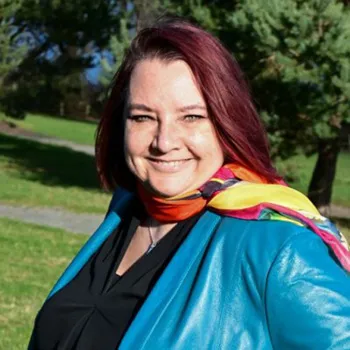Many Seattleites like to grumble about "tech bros," young men with high-paying jobs at companies like Amazon, Google, and Microsoft. These men are blamed for rising rent, a steeper cost of living in general, and even the sad state of dating in the city.
We may feel like we're being pushed out of places full of Queer history, like Capitol Hill and Pioneer Square by these types, but there are signs that LGBTQ people in corporate offices are fighting a battle on a far more personal level.
Some readers might recall a barrage of online articles in 2016, all citing a report from the Equal Employment Opportunity Commission. The report showed that in 2014, tech workers, and especially executives in the industry, were overwhelmingly men and disproportionately white.
Further research since then has only painted a clearer and more alarming picture. An article in CIO, an executive magazine about information technology, put together studies and surveys from the last three years and found stark gender disparities in employment, salary, promotions, and leadership. It also found that some of those gaps were even worse for Queer women.

Ex-techie Cindy Gross isn't Queer, but she didn't need to be to experience the kind of workplace culture that pushes out anyone who doesn't fit the white male standard. In 2018 she left a successful career at Microsoft after 25 years in the industry. Now, under the brand Befriending Dragons, she is a "workplace thrival coach" who specializes in helping women deal with discrimination in tech.
"From what I can see, between the Me Too movement, Black Lives Matter, and COVID, there was this huge stepping up of DEI [diversity, equity, and inclusion] efforts," Gross said of the tech industry. "There were people hired in, usually one person ... with a big splashy title.
"And a lot of individual contributors – managers, executives – ...went to their book club, they went to a couple trainings. That has some positive impact. But a lot of people stopped. They didn't go deeper."
The "dragons" Gross helps clients befriend aren't the tech giants themselves, or white patriarchy. Instead they are "your instincts, your fears, your anxieties," she said. Fear can be overwhelming, but it can also tell us when something is wrong, which is still an important signal for women in the tech industry right now.
"Companies have gotten very good at saying, 'Well, here are all our DEI policies, here are all our antiharassment policies,'" Gross said. "But they keep them very separate. They don't consider antiharassment as part of their DEI strategy."
LGBTQ people have likely caught wind of these trends. In 2018, a study by the Institution of Engineering and Technology found that 30% of LGBT young people in the United Kingdom wouldn't consider a career in STEM due to worries of discrimination. Those numbers are from just one country across the pond, but further research in this particular area has been scarce.
Fortunately, the Human Rights Campaign (HRC) has been keeping tabs on "major businesses" in general, through its annual Corporate Equality Index (CEI). Last year the organization surveyed hundreds of companies and gave over 800 of them "perfect scores," including Apple and Amazon.
The four "key pillars" of the HRC's ratings are "nondiscrimination policies across business entities, equitable benefits for LGBTQ+ workers and their families, supporting an inclusive culture, and corporate social responsibility."
However, the 2022 CEI notes that "policy does not equal practice," and that "despite progress, 46% of LGBTQ+ workers nationwide remain closeted on the job."
For lasting change to happen in an organization, Gross said, "I think it needs to start everywhere. And so what I would advocate for is that every single person and every single team ...has DEI roles, and everybody has DEI responsibilities.
"You can't say it has to start at the top or it has to start at the bottom," she said. "It really has to belong to everyone."
Now that affirmative action in college admissions has been struck down by the Supreme Court, it may be worth keeping an even keener eye on diversity in tech. Few women and marginalized people are present in the industry to begin with, and its main pipeline, colleges, have lost a crucial tool for equity, so things may get worse before they get better.


